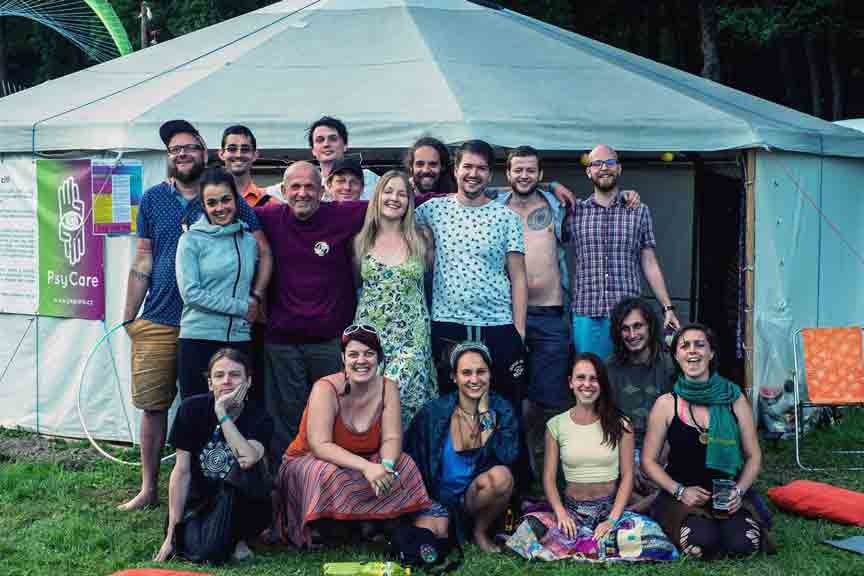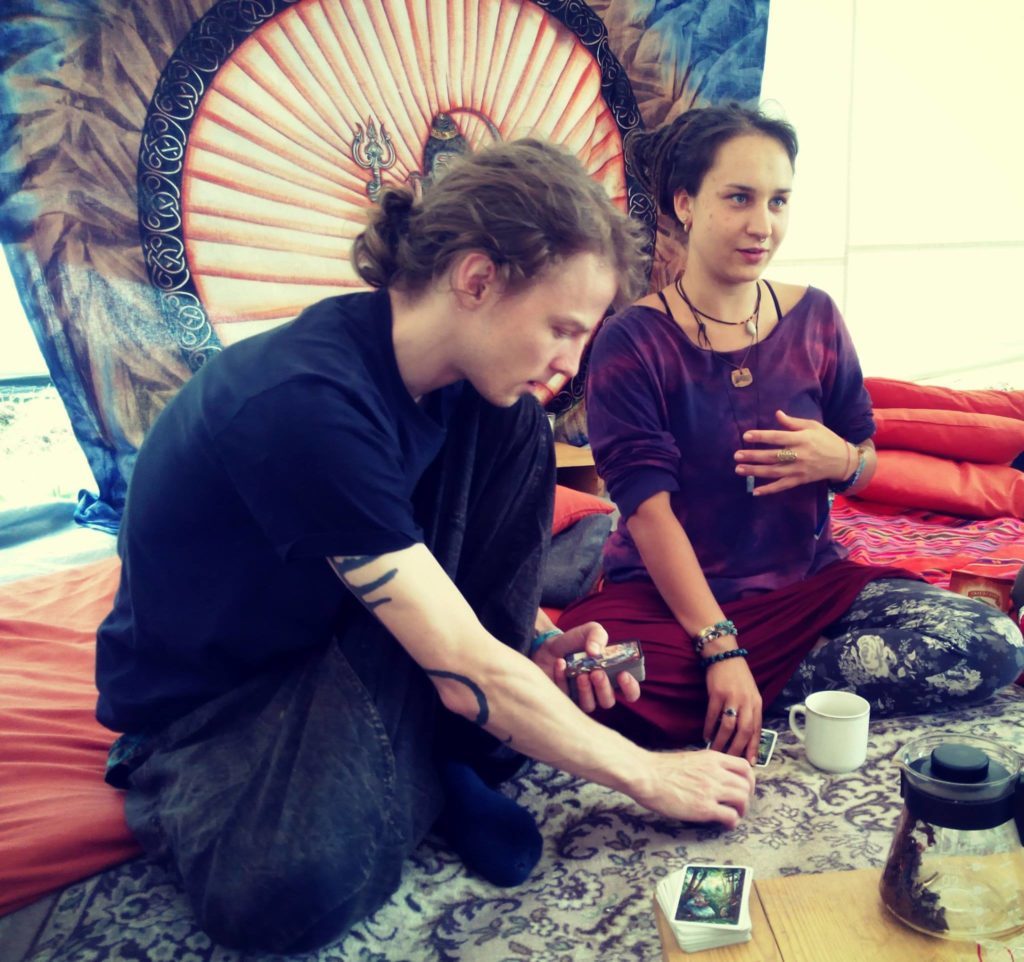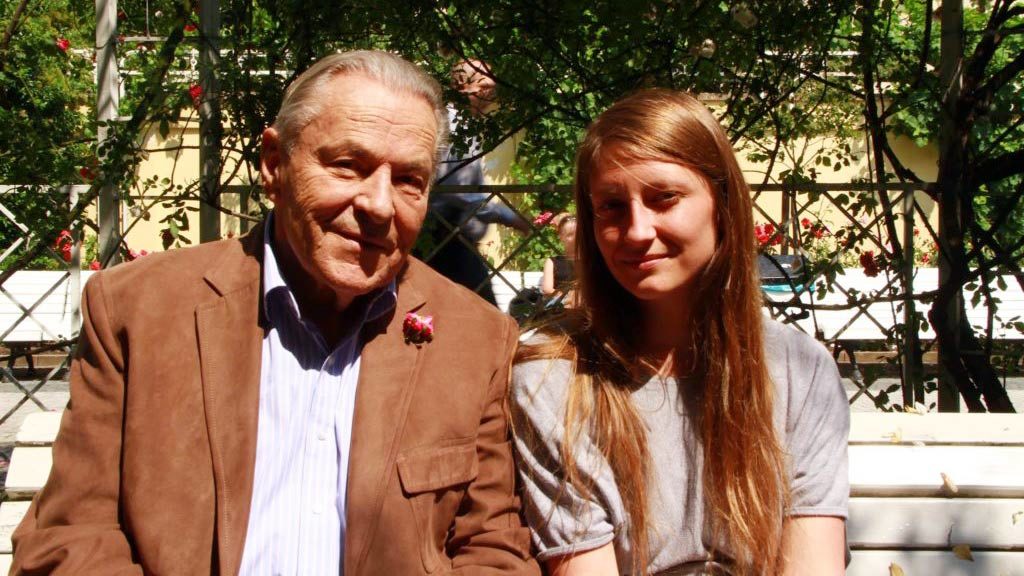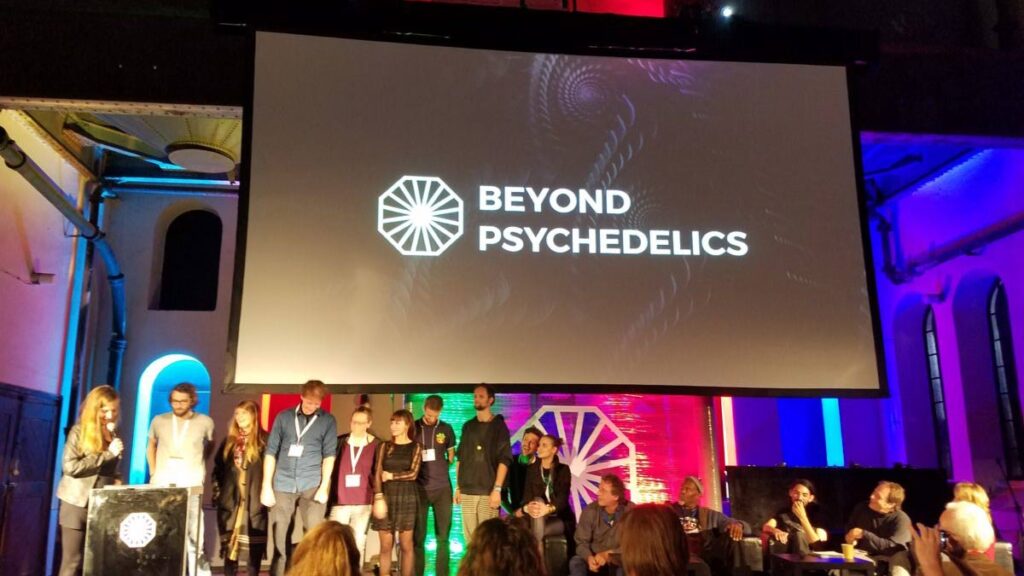Psychedelic Harm Reduction in the Czech Republic
The Czech Psychedelic Society is creating the Czech version of Zendo Project and KosmiCare.

Psymposia is a 501(c)(3) nonprofit research and media organization that offers critical perspectives on drugs, politics, and culture. We rely on contributions from our readers and listeners. Your support is vital to sustaining Psymposia.
Support Psymposia’s independent journalism on Patreon and help us drive the Mystery Machine! We’re a bunch of meddling kids who are unmasking the latest shenanigans on the psychedelics beat.
The Czech Psychedelic Society’s newest project, PsyCare, is a free service aimed at providing professional help at larger music events to individuals undergoing a challenging psychedelic experience that could otherwise have unpleasant psychological consequences. Basically, they are creating the Czech version of the Zendo Project and KosmiCare. And they are leveraging the power of crowdfunding to do it.
We talked about the project with Czech Psychedelic Society’s Eva Césarová. Eva is also one of the organizers of last year’s Beyond Psychedelics Global Psychedelic Forum and the upcoming International Transpersonal Conference in Prague, featuring Stan Grof, Alex and Allyson Grey, and more. Psymposia will be organizing stories from the presenters and attendees about various altered states of consciousness – including journeys beyond psychedelics.
How did you become involved with the Czech Psychedelic Society?
I happened to be around when a group of practitioners and students of psychiatry, psychology, and psychotherapy started meeting to create psychedelic community in the Czech Republic. I was studying marketing and communications, and they thought that it was needed as well. So I jumped in.
Harm reduction is becoming an increasingly important part of the conversation in the psychedelic community. How did you become interested?
I also became involved in an international organization called Youth RISE that is focused on harm reduction for all drugs. That was when I started to really understand the need and urgency of harm reduction.
I personally attended a number of festivals and parties with unknown sources of substances, poor prevention and quality of information, and high rates of recreational use. It is a miracle that there haven’t been more tragedies.
What does PsyCare do to help with these situations?
Well, PsyCare creates a safe place, a quiet zone where people can go through a challenging experience, and if needed, they will get a personal sitter who will help them with whatever the situation calls for. Sometimes it is just a presence, touch, or voice. We have a number of volunteers (currently about 50) who are involved in the project.
At the Ufo Bufo festival in June, three team members were in constant shift, and the service was running from Thursday 8pm until Sunday 2pm. There were 23 people who we helped through a difficult experience, and we answered questions for dozens of others.
Because we understand the importance of a comfortable place, we had a jurta with mattresses, blankets, pillows, chairs, tables, and first aid supplies. For Ufo Bufo, we rented everything. Now we want to raise money to buy the equipment.

What about the issue of people not knowing the sources and quality of their substances?
That is a big issue all over, not only in the Czech Republic. Basically, you never know. Until substances are regulated, nobody can be 100% sure (except in the medical setting, of course). So the best option would be to regulate all drugs so people have access to pure substances. Until that happens, we can only do our best to reduce risks related to the drug impurity. And that is, for example, by drug testing. Unless you go for an expensive chromatograph, it is not as reliable as we may wish, but it is still a way to warn someone about adulterated substances. Fortunately there are also progressive projects like Energy Control in Spain, that are identifying substances that people send them for free.
One more important thing about harm reduction — more people are helped than the ones receiving drug testing or sitting services. A lot of people come just to get information and ask questions. Most of those are the “90% of people who use drugs but are not addicted” (according to World Health Organization) and “don’t have a problem.” These people would never come to the services, but they are still receiving valuable information.
Some people and policies view harm reduction practices as helping to spread or encourage drug use. For example, the RAVE Act in the US. What are your thoughts on this?
You know, since we have been children, we have been pushed to do sports. To keep our “physical temple” fit. On the other hand, you have consciousness. Some people train it with meditation, lucid dreaming, yoga, etc. And then you have psychedelics and other psychoactive drugs. We can think of their use as an adrenaline sport for the mind. Adrenaline sports are generally dangerous but that doesn’t mean that we should forbid them. Instead, we apply safety measures that help to make these activities safer. And that is exactly where psychedelic harm reduction is aiming. Reduce the harms.
Harm reduction is an approach that doesn’t judge anybody, acknowledges that people use substances no matter what the law or society say, and makes the conditions as safe as possible.
Why do you think people use psychedelics at festivals and parties?
People use psychedelics for various reasons – for spiritual purposes, insights, self reflection, therapy, creativity, fun. I often think, what do people do when they don’t? 😀
When you feel overwhelmed, tired, when it is just simply too much and you don’t use psychedelics, what do you do? Last year while balancing at the edge of my power and abilities, I left everything and went to a festival where I dropped acid… And it was amazing. I went from a state of “everything sucks, the project [Beyond Psychedelics 2016] I have been working on for the past six months is not going to happen” to “everything is going to be alright.” And that mindset really changed it all. And if you would ask me, “Would you do that again?” I would say yes. But another question is, “Is that safe?” No, it is risky. No matter how experienced of a psychonaut you are, there is always a possibility that something can go wrong. And that is why PsyCare is so important to be present at events where attendees use psychedelics.

You mentioned working on Beyond Psychedelics 2016, which was amazing! You’re also one of the organizers for the upcoming International Transpersonal Conference in Prague. What have been your favorite aspects of working on these conferences?
I am not directly organizing but I manage public relations (PR) and therefore I get to be in touch with many of the international organizations’ coordinators and communication people. I get to meet them eventually and it is really beautiful to see that the movement really attracts similar people. The longer you stay, the more doors open to new possibilities and collaborations. And it gives you hope.
On the other hand, being part of these conferences is also an opportunity to learn, grow, and meet the people whose names you have on your bookshelves. You can see their lectures, ask them questions, or eventually speak with them, and that is an experience I am very grateful for.
What are your fondest memories from BP16?
Haha, when I saw a retired academic artist, former dean of the University of Art in Prague, dancing to electronic music and introducing himself to girls. And next to him a girl was dancing and shouting that it was the best conference she ever attended. But I think that more than memories of the event itself, what I find important are the post-processes that took off after the conference. There were a lot of those, and that is very valuable for me — loads of new projects, research, open doors, friendships, and even a couple romantic follow ups. I think that for our first conference it was a miracle that nothing major went wrong, but I still hope that the next one will be even better.

What are you most excited about for ITC 2017 Prague this September?
I am personally really looking forward to ITC because of the unique list of speakers. I read books and works of many of them, so it is very exciting to welcome to Prague my own heroes like Stan Grof, founder of transpersonal psychology and pioneer of LSD research; Ervin Laszlo, author of the Akasha paradigm; the great artist Alex Grey; Dean Radin, who will be speaking about magic; Charles Grob who is one of the most significant psychedelic researchers; and many of the top researchers of MDMA such as the Mithoefers, Janis Phelps, and Rick Doblin himself.
I think that it is really needed to review reality from the point of view of the potential of consciousness and its role in the next development of mankind.
I’m definitely looking forward to it! Can you tell us about your crowdfunding campaign for PsyCare?
Well, we have until 26th of July to raise 6800 euros.
The platform HitHit allows us to have both Czech and English text, and we are willing to send rewards abroad. We are offering books, shirts, psychedelic canvases, posters, pendants, patches and other things.
We decided to test the support of the community that has been growing since the start of our activities on the national level as well as the international one. Harm reduction has been a grassroots movement that came from the people to the people. A lot of our volunteers come from the psytrance community and have experienced difficulties firsthand. And since it can happen to anyone’s child, anyone’s friend, we should support each other, no?
Hey! Before you go… Psymposia is a 501(c)(3) non-profit media organization that offers critical perspectives on drugs, politics, and culture. We strive to ask challenging questions, and we’re committed to independent reporting, critical analysis, and holding those who wield power accountable.
Our perspectives are informed by critical analysis of the systemic crises of capitalism that have directly contributed to the unmitigated growth of addiction, depression, suicide, and the unraveling of our social relations. The same economic elite and powerful corporate interests who have profited from causing these problems are now proposing “solutions”—solutions which both line their pockets and mask the necessity of structural change.
In order for us to keep unpacking these issues and informing our audience, we need your continuing support. You can sustain Psymposia by becoming a supporter for as little as $2 a month.





